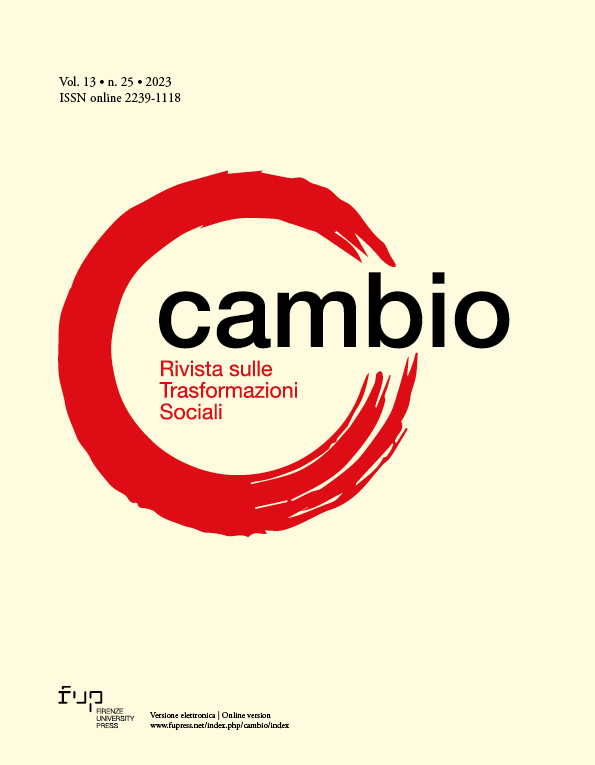La campagna per il Referendum Costituzionale 2020 e la comunicazione antipopulista su Facebook: un’applicazione di Content Analysis dagli esordi accademici del primo Crowdtangle
Published 2023-04-04
Keywords
- Constitutional Referendum,
- Content Analysis,
- CrowdTangle data
How to Cite
Copyright (c) 2023 Suania Acampa, Francesco Marrazzo, Gabriella Punziano

This work is licensed under a Creative Commons Attribution 4.0 International License.
Abstract
Closing free access to online platform APIs has changed social research in digital spaces. Access to data is now managed and regulated exclusively by proprietary platforms, which have shared various tools to data extraction with precise rules to data access. Several scholars and researchers have many doubts about these rules and the possibility that these tools can significantly support research in the field of social sciences. This work was born from the interest of testing one of the tools made available to researchers by the Facebook platform called CrowdTangle and proposes a thrust into the epistemological problems and the methodological implications of its use in the investigation of social phenomena in digital spaces. The object of the study is the Italian 2020 Constitutional Referendum. What emerges from the work is how much the tool used for data collection forces researchers to reflect methodologically in order to identify its potential and pitfalls. Starting from these reflections, a scalable analytical model based on Content Analysis is proposed from a double perspective: quantitative automated, and interpretative hermeneutic. The results obtained help to overcome the pitfalls of the collection tool through a combined perspective and merged into an exploratory application of analysis of multiple correspondences in the end. The analysis of multiple correspondences was an indispensable step to arrive at the definition of latent dimensions in anti-populist communication.

